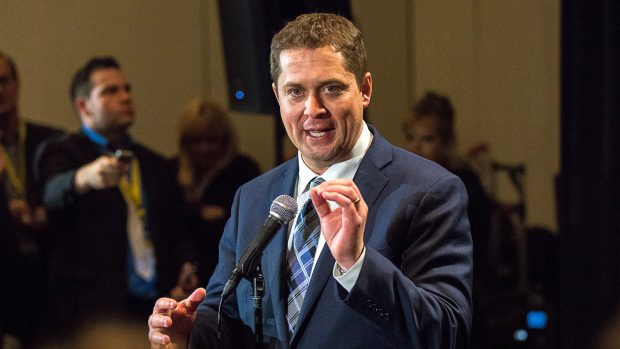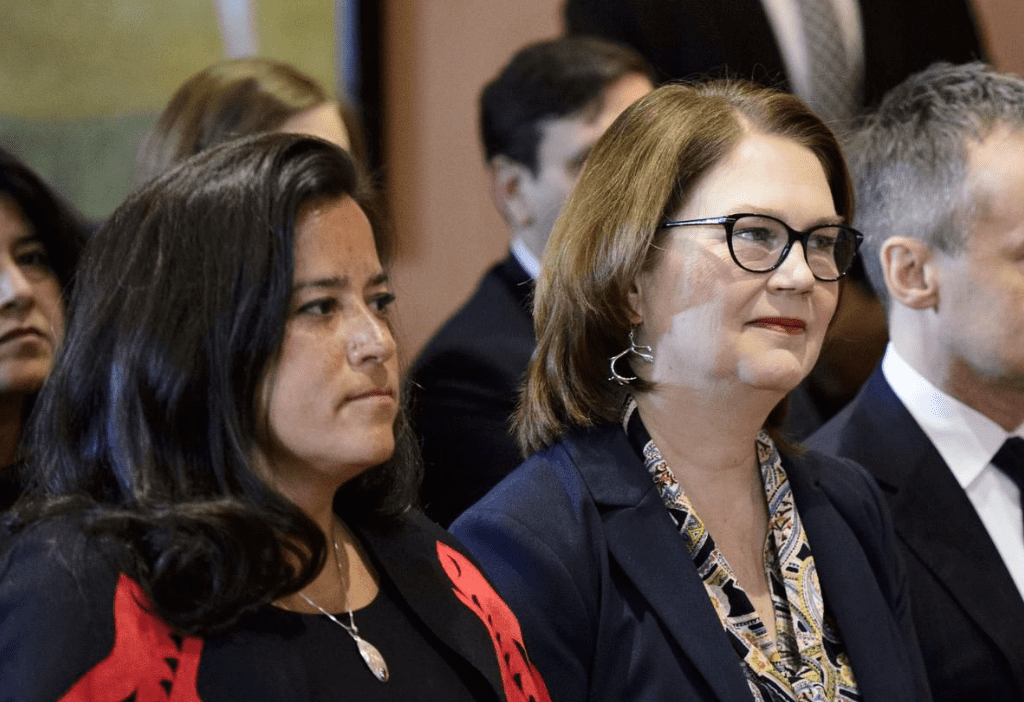Conservative leader Andrew Scheer has been giving a series of speeches laying out his "economic vision" for the country, which, strangely enough, fails to have much an actual economic case for much of what he proposes. He talks about crippling deficits that are actually small and sustainable with an economy as large as ours, about easing the mortgage stress test which would only serve to ensure that the CMHC has poor quality debt on its books, and about a proposal for a single east-west corridor for infrastructure and energy lines across the country. It's a proposal that could have merit if it was about more than just pipelines, but that seems to be where Scheer's focus is aimed, given his subsequent "six-point" sham of a plan to get pipelines built that would do absolutely nothing of the sort.
The idea of an east-west corridor has been around since at least the 1970s, and was most recently revived by researchers at the University of Calgary (which received an endorsement from the Senate's banking, trade and commerce committee), who have a vision of a northerly corridor to move goods across the country and ease the bottlenecks along the southern routes, largely when it comes to rail capacity. Along with that northern rail corridor and to be clear, it's not really a single corridor given that it proposes spurs that would go to ports in the Northwest Territories, Churchill, the Gulf of the St. Lawrence, and up to Labrador would be things like pipelines and electricity transmission lines (which would have the added complication of needing to convert from AC to DC for transmission over broad stretches), all of which could serve more northern communities and off-grid First Nations in places. If properly constructed, there could be great economic benefit to the country to it but that's a very big if.
Part of the impetus, at least in Scheer's case, is that it would theoretically get all of the approvals and environmental assessments taken care of in one fell swoop, along with all of the Indigenous consultations, and so on. And given how many First Nations and Inuit communities that these proposed corridors would run through, it's a big undertaking, in an era of land claims and recognition of title. But the subtext of Scheer's own appropriation of this corridor concept into his "economic vision" is that it means more pipelines, because he keeps trying to articulate the case that it's good for the environment and our moral standing. As part of that, he wants to ensure that there is enough east-west pipeline transmission in Canada to ensure that we stop importing oil by 2030 something that is not only unfeasible, but has no economic case. This corridor concept could take decades to come together, which is why I understand why its proponents are eager for the federal government to start work on it right away.
As part of Scheer's ongoing "economic vision" rollout was his supposed "six-point plan" to build pipelines, all of which were pipe dreams. Scrapping the federal carbon price (which major energy companies support) will only create uncertainty in the market; repealing Bill C-48 won't materially affect energy markets because there are no planned pipelines to go to the northern BC coast (and no, Northern Gateway is unlikely to be revived given the Federal Court of Appeal ruling); undoing Bill C-69 will only result in yet more litigation like we've seen since the 2012 Conservative changes to environmental assessments; the charge of "foreign interference" in energy project approvals is the stuff of conspiracy theories that conservative parties are contenting themselves with as an excuse for why there is opposition to these projects; establishing firm timelines will also mean more litigation; and invoking "constitutional authority" to build major projects is more hokum because it's based on the mistaken belief that Section 92(10)(c) of the constitution is a magic wand that will clear provincial opposition, when projects that cross provincial boundaries are already federal jurisdiction.
Add to that, Scheer's vision of energy independence by 2030 would mean reviving Energy East, which the proponent already abandoned as being unfeasible economically given the revival of Keystone XL and the Trans Mountain expansion (which I am pretty confident will get its approval next month). Unless he plans on nationalizing it, it's unlikely the proponent will make the case to revive it, and more to the point, it wouldn't actually do anything for getting western oil to eastern gas stations because it would mean building more upgraders and refitting refineries to deal with the heavy crude that Alberta produces, which would likely mean billions of more government dollars to make those projects happen. Even if that happens, and it's a very, very big if, the price differential is still the key factor. What this sounds like is a proposal for NEP 2.0, where Alberta would be forced to accept a $10/barrel discount in order to feed eastern markets. I can recall a time when Albertans were mighty upset about such a national energy proposal before funny how they don't seem to realize they're being sold a similar bill of goods now.
The other thing that we should recall with Scheer's "vision" is that it remains rooted in old thinking. Yes, there is still a market for our energy resources, and there will be for some time, but it is becoming a smaller and smaller share of our national GDP. In fact, IT services are set to outpace the oil and gas industry in terms of the share of GDP before long, and Canada's services exports are continuing to grow. Nothing we've seen from Scheer's "vision" so far mentions any of this (though, to be fair, he has more parts of this "vision" he still plans to roll out). Nevertheless, the fact that he is leading with this particular aspect is not exactly instilling confidence in what he sees as the future of Canada, or the party that bills itself as being good stewards of the economy.
Photo Credit: CBC News








